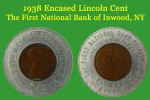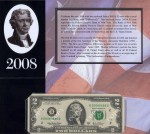Advancements in all areas of life, whether it is the cars we drive, the entertainment that we like, how we shop, and where we get our news are inevitable. Where the car I drove in college had a the classic Chrysler Slant 6 engine with nothing electronic, I now drive a Chevy pickup with a Vortec V8 with variable timing controlled by a computer that will even start with the push of a button on my key fob.
Rather than complain about these changes, I try to embrace them as progress. After all, I started programming computers by punching cards in the 1970s. Today, the smartphone in my pocket has more computing power than anyone could have imagined while feeding our cards through the reader waiting for output on green bar paper.
Because I like to be progressive with technology and feel that not only have I seen a lot but that I adjusted, I tend to look down on those who cannot. I know that it may be elitist and contemptuous on my part and I should be more understanding, especially now that I bought a car with a Slant 6 as a toy and want another car without all of the electronics.
This self examination was prompted by an article by Q. David Bowers that appeared online on the Coin World website. In the article, Bowers reflects back as to how the hobby has changed since he started writing his column in 1961 and what it is today.
Basically, you used to have to know more about numismatics. You had to know what you were looking at in order to grade coins, know where to find the prices, have the education to know what is fake and what is not, and have a trusted dealer that you can go to to help you with your collection. It was a lot like my Slant 6 in that while the dealer would help, I had to know more about the car in order to keep it running, especially as a poor college student.
Today, Bowers says it succinctly, “No knowledge is necessary!”
While this can help grow the hobby, it makes it just a bit colder. You do not need a dealer when the Internet will do. You do not need the knowledge when companies will entomb a coin in plastic, say it is genuine, and assign a grade so you know what its state of preservation is. If the plastic is not enough, you can even find someone to place a sticker on the plastic to bless that the plastic is good. Then the sticker placer will buy the plastic to churn the market that will essentially drive up the prices.
Although the grading services do provide a service that guarantees the coin’s authenticity, they have also created a fervor over plastic that caused the the despicable behavior during the launch of the Kennedy gold tribute coin.
“If you are typical, quality means nothing. The label on a holder takes care of everything,” writes Bowers. Sadly, he is right because people are no longer collecting coins. They are collecting plastic and stickers while watching online price guides the way day traders watch stock prices. If the coin does not raise in value fast enough, they will buy the next number higher on a plastic package even if the new coins does not look better than the old coin.
Just like listening to the whine of a hybrid takes the charm out of being a car enthusiast, plastic and stickers are taking the charm out of collecting.
To regain the charm Bowers suggests niche or specialty collecting. He says to, “Check out the websites of the Colonial Coin Collectors Club, Early American Coppers, the Liberty Seated Collectors Club and the Numismatic Bibliomania Society, and poke around!”
In addition to Bowers’ suggestions, you may also want to consider Token and Medals Society along with the regional chapters, The Elongated Collectors (TEC), and even the American Vecturist Association. What makes tokens, medals, and even elongated coins very interesting is that you can really personalize a collection. Think about it, how many places have you visited that had a machine where you drop in some money plus a “lowly” Lincoln cent and with a turn of a crank you have the equivalent of a numismatic post card!
A hobby should be fun. So forget the plastic and stickers and go find something and have some fun.
For a little fun, here is a sample of my “Hometown Collection.”
- 1984 LIRR Sesquicentennial Bronze Medal
- TBTA Toll Token
- 1938 Encased Cent from the First National Bank of Inwood (NY)
- A check from the First National Bank of Inwood (NY)
- Medal from the opening of the Brooklyn Bridge in 1883
- 1956-D Encased Cent from the Chase Money Museum
- 2008 $2 Single Note from the New York Fed








